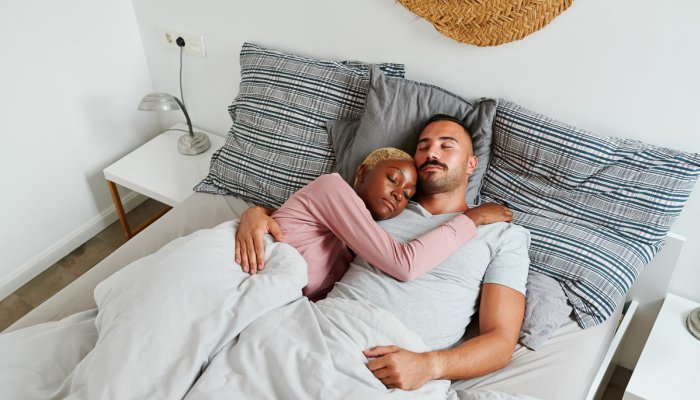How Much Sleep You Should Actually Be Getting, Depending On Your Age

These AASM and SRS recommendations will suit most people. But as we’ve all surely experienced, there are all kinds of factors that influence how much sleep we might need on any given night.
And as Canadian researchers note in a 2018 publication on sleep duration, “There is no magic number or ideal amount of sleep to get each night that could apply broadly to all. The optimal amount of sleep should be individualized, as it depends on many factors.”
We all have that friend who’s fine with seven hours, and one who swears they need nine. It turns out that factors such as genetics, health status, diet, activity level, and hormonal balance can all influence whether you need more or less sleep.
“What is most important is for each individual to get the amount of sleep they need,” naturopathic sleep doctor Catherine Darley, N.D., tells mbg. “Sleep need is a bell curve.”
And while some of us will require less sleep than others, sleep inadequacy over time is never a good thing. If you’re consistently getting less than seven hours of sleep, your body and mind are likely paying the price. There is also evidence that when it comes to sleep, consistency is key. Research shows people who get four hours of sleep or less on some nights and 10 hours or more on others experience a negative impact on cognitive function than those who consistently get seven hours or more.
This article was originally published by mindbodygreen.com. Read the original article here.




